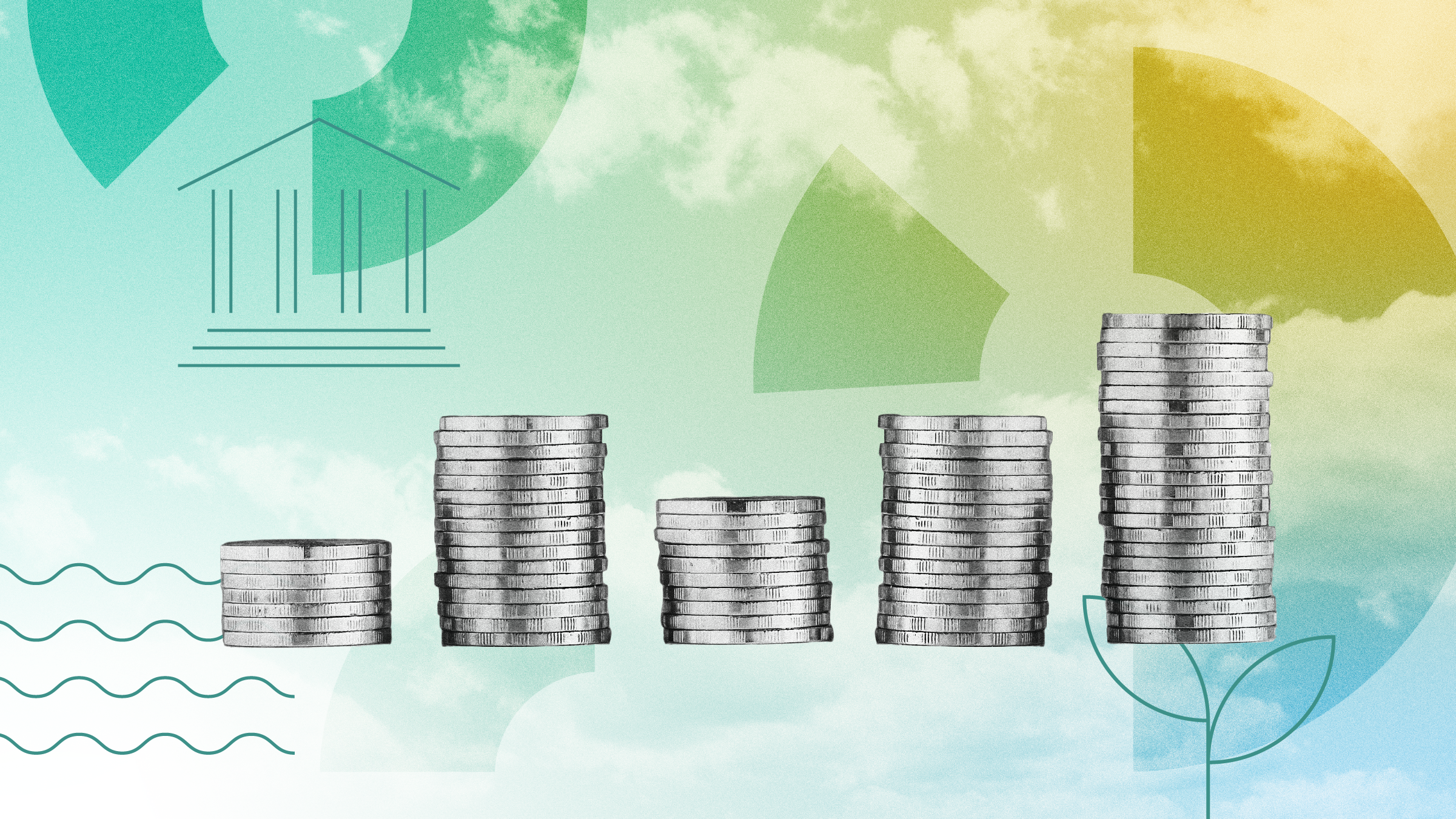5 Sustainable Stocks With a High Yield
These stocks are widely held by ESG investors and have 3%-plus dividend yields.

Stocks owned by ESG funds are often thought to be strong growers but light on dividends. That’s not necessarily the case. We found five stocks that are widely owned by sustainable funds but also have above-market yields. They are Best Buy BBY, Prudential Financial PRU, Exelon EXC, Interpublic Group of Companies IPG, and HP HPQ.
Dividend Investing
The dividend yield is a stock’s annual payment to shareholders, expressed as a percentage of its stock price. The current yield for SPDR S&P 500 ETF Trust SPY and the Morningstar US Large Cap Index is 1.3%.
Growth stocks, or companies expanding exponentially, tend to pay less in dividends since they reinvest their profits for expansion. Generally, well-established companies tend to pay out dividends since their growth has usually peaked and their stock price tends to follow a consistent trend.
Dividend Yields of 5 Sustainable Stocks vs. the Market Yield

Our Methodology
For this article, we aggregated the holdings of US-domiciled large-cap sustainable funds. We then filtered the list by looking at the 200 stocks that were the most widely owned and compared them with the stocks most widely owned by traditional US-domiciled large-cap funds. We then looked at the stocks in the top 200 holdings of sustainable funds that didn’t appear on the comparable list for traditional funds. We sorted these stocks by yield.
1. Best Buy
Price: $78.21 as of March 6, 2024
Fair Value Estimate: $90
Morningstar Rating: 3 stars
Morningstar ESG Risk Rating Assessment: Low
According to Morningstar senior equity analyst Sean Dunlop, “Best Buy’s dividend should be safe, with its 5%-plus yield looking quite attractive to income investors. The consumer electronics retail stalwart has historically paid out 35% to 45% of earnings toward dividends, but as the firm’s store base continues to modestly decline—requiring less ongoing capital investment—we expect that ratio to creep up toward 50% to 55% in the long run.”
Dunlop added, “The net effect, taken in tandem with normalizing profitability, is attractive dividend-growth prospects over the medium term for a name that trades in 4-star territory. Said otherwise, investors should benefit from a steady dividend payment at a minimum but could see even better shareholder returns from share price appreciation if our forecasts prove accurate.”
In a previous report, Dunlop wrote, “We believe Best Buy is taking adequate steps to shore up its competitive position in an intensely competitive consumer electronics space. Moving forward, the firm plans to prioritize its digital platforms, continue reimagining its in-store experience, and invest in incremental revenue streams.”
2. Prudential Financial
Price: $109.61 as of March 6, 2024
Fair Value Estimate: $108
Morningstar Rating: 3 stars
Morningstar ESG Risk Rating Assessment: Low
“Overall, the company has returned approximately $26 billion to shareholders in the past eight years through dividends and share repurchases,” Morningstar equity analyst Suryansh Sharma wrote in a report. “The capital returned to shareholders over the last eight years amounts to approximately 90% of the company’s GAAP earnings,”
Prudential Financial provides a variety of financial-services products, including life insurance, annuities, retirement plan services, and investment management products in various countries. The investment management business has achieved adequate scale and is a source of stable earnings, strong operating margins, and steady cash flows for the company, Sharma says.
3. Exelon
Price: $36.68 as of March 6
Fair Value Estimate: $39
Morningstar Rating: 4 stars
Morningstar ESG Risk Rating Assessment: Medium
Exelon is a pure-play electric and gas transmission and distribution utility that provides investors with a stable earnings profile.
“We think the company’s 60% dividend payout policy is appropriate, given the high quality and relatively stable nature of its rate-regulated operations,” Morningstar strategist Andrew Bischof wrote. “We expect the balance sheet to remain sound and in line with regulatory requirements, supported by the company’s low revenue cyclicality. We expect the company’s investment strategy to focus on growing assets through regulated investments, which we think is a reasonable approach.”
4. Interpublic Group of Companies
Price: $31.85 as of March 6.
Fair Value Estimate: $39
Morningstar Rating: 4 stars
Morningstar ESG Risk Rating Assessment: Negligible
Interpublic Group is one of the global Big Five advertising holding companies along with Dentsu, Omnicom, Publicis, and WPP.
“We assess the capital allocation of IPG as Exemplary,” Morningstar director Michael Hodel wrote in a report. “IPG continues to allocate capital to drive growth and market leadership via acquisitions and further reward shareholders via dividends and share repurchases.”
IPG has consistently increased its dividend, posting 7% average annual growth over the past five years. The dividend has consumed a bit less than 40% of free cash flow cumulatively during this period, Hodel said.
5. HP
Price: $30.23 as of March 6
Fair Value Estimate: $27
Morningstar Rating: 3 stars
Morningstar ESG Risk Rating Assessment: Low
“We don’t anticipate HP improving its midcycle growth potential or margin profile, but we do expect it to continue generating heady cash flow and sending nearly all of it back to shareholders between its dividend and repurchase program,” Morningstar equity analyst William Kerwin wrote in a recent report. “Investors able to look past HP’s low growth may find the company’s distributions enticing.”
Kerwin added, “Despite HP’s strong market share in PCs and printing, we don’t see it having an economic moat. These products are commodities, and their markets are price-sensitive. Even as these markets consolidate around top players like HP, we foresee little ability to generate stickiness and differentiation, or to exert a cost advantage.”
The author or authors do not own shares in any securities mentioned in this article. Find out about Morningstar’s editorial policies.
Morningstar, Inc. licenses indexes to financial institutions as the tracking indexes for investable products, such as exchange-traded funds, sponsored by the financial institution. The license fee for such use is paid by the sponsoring financial institution based mainly on the total assets of the investable product. A list of investable products that track or have tracked a Morningstar index is available on the resources tab at indexes.morningstar.com. Morningstar, Inc. does not market, sell, or make any representations regarding the advisability of investing in any investable product that tracks a Morningstar index.


/cloudfront-us-east-1.images.arcpublishing.com/morningstar/RFJBWBYYTARXBNOTU6VL4VSE4Q.png)
/cloudfront-us-east-1.images.arcpublishing.com/morningstar/WYB37DY4NVDTVNZTSBDENH3GMI.png)
/cloudfront-us-east-1.images.arcpublishing.com/morningstar/JPJHXR5CGSNR4LKQF5ZKLCCVYQ.png)